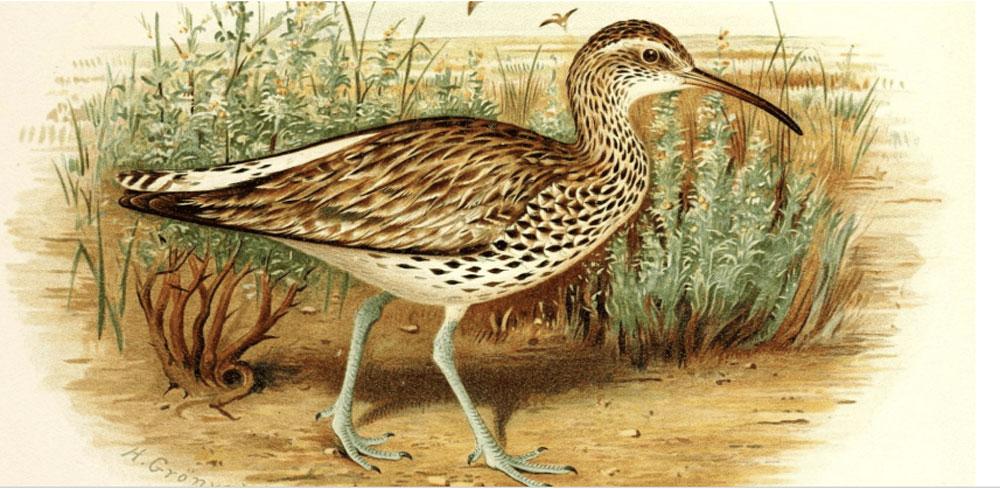20 Nov 2024 - {{hitsCtrl.values.hits}}
 Independent - A bird species found in mainland Europe and the Mediterranean is thought to be extinct globally by a coalition of conservation groups.
Independent - A bird species found in mainland Europe and the Mediterranean is thought to be extinct globally by a coalition of conservation groups.
The slender-billed curlew – a migratory shorebird that bred in western Siberia and migrated to the Mediterranean in winter – could be the first known global bird extinction from mainland Europe, north Africa and west Asia.
Scientists from the RSPB, BirdLife International, Naturalis Biodiversity Centre in the Netherlands and Natural History Museum published an analysis of the species conservation status on Monday.
They found that the last irrefutable sighting of the slender-billed curlew was in February 1995 in Morocco and are concluding it is globally extinct.
The International Union for Conservation of Nature (IUCN) red list, which officially rules species as extinct, has not done so yet for the slender-billed curlew.
The conservation groups said extensive efforts that have been made for decades to find evidence of the bird across its breeding and non-breeding ranges have all proved unsuccessful.
It marks a stark warning of the need to tackle the loss and degradation of inland grassland and wetland, they said.
The paper, published in the journal IBIS, used objective statistical analysis of threats to the species and a database of records, including museum specimens and sightings, to assess the likelihood of extinction.
Their findings suggest there is a 99.6% chance that the bird no longer exists and went extinct around the time of the last record two decades ago.
Nicola Crockford, principal policy officer for the RSPB, said: “This is one of the most fundamentally devastating stories to come out of nature conservation in a century and gets to the very heart of why the RSPB and BirdLife Partnership are doing what we do; that is, ultimately, to prevent extinction of species.”
Commenting on the bird’s connection to Europe and the Mediterranean, she said: “How can we expect countries beyond Europe to step up for their species when our comparatively wealthy countries have failed?
“Extinction is forever. This news highlights that our work to save the Eurasian curlew and black-tailed godwit, as well as many other migratory shorebirds that are of conservation concern, is of utmost urgency to prevent more species following the slender-billed curlew into extinction.”
Graeme Buchanan, head of international conservation science with the RSPB, said: “Declaring a species extinct is not something that is done lightly and the IUCN who make the ultimate decision on extinction for the red list of threatened species need full details of the status of a species before doing so.”
He said that while declaring a species extinct too soon could lead to the removal of potentially beneficial conservation efforts, prolonged investment in already extinct species could waste limited resources.
“It is now up to IUCN to make the decision on the status of the species,” he said.
The conservationists said the causes of the slender-billed curlew’s decline may never be fully understood, but possible pressures included extensive drainage of their raised bog breeding grounds for agricultural use, the loss of coastal wetlands used for winter feeding, and hunting, especially latterly, of an already reduced, fragmented and declining population.
There also could have been impacts from pollution, disease, predation and climate change, but the scale of these impacts is unknown, they added.
26 Dec 2024 39 minute ago
26 Dec 2024 45 minute ago
26 Dec 2024 1 hours ago
26 Dec 2024 2 hours ago
26 Dec 2024 4 hours ago